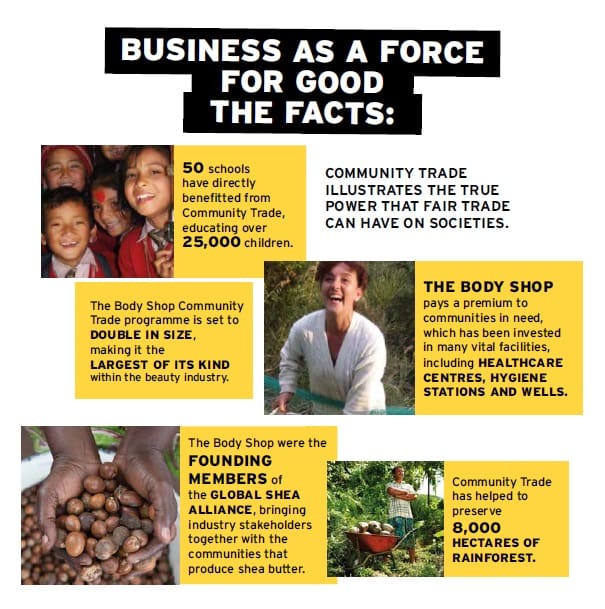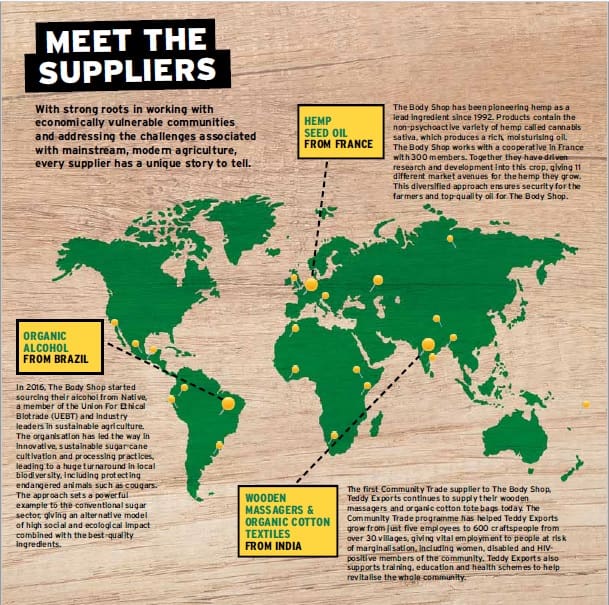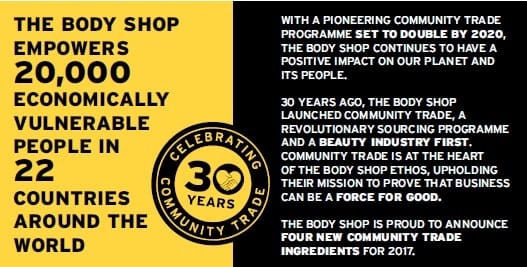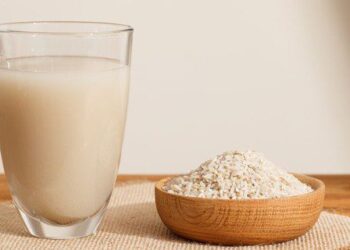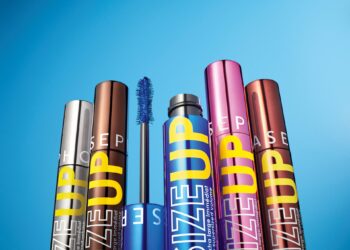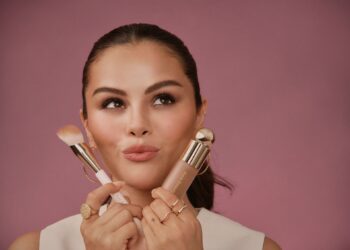2017 marks 30 years of The Body Shop‘s revolutionary sourcing programme, Community Trade. A beauty industry first, Community Trade has been the epitome of The Body Shop’s core belief that business should be a force for good.
A firm believer in empowering people, The Body Shop’s founder Dame Anita Roddick founded Community Trade as Trade Not Aid in February 1987 as a way to give developing communities a hand up, rather than a hand out. The Body Shop’s first supplier was Teddy Exports in India, who have been supplying The Body Shop with a wide variety of high-quality gifts and accessories ever since.
Thirty years on, Community Trade remains the strongest fair trade programme in the beauty industry and by the end of 2017 will have 23 Community Trade ingredients plus accessories and gift products sourced from 30 supplier communities in 22 countries.
The Body Shop brings great, naturally-inspired products to its customers in line with the three main aims of the Community Trade programme today: transforming marginalised communities around the world, preserving traditional crops and farming methods, and promoting sustainability in farming that challenges the status quo.
The Body Shop also added four new ingredients to the Community Trade list, bringing the total to 23. New almond oil from the Alicante region of Spain, banana puree from Ecuador, British rose essence sourced organically from Herefordshire, England and mango seed oil from India will begin to be used in The Body Shop products throughout 2017.
The Body Shop is proud to work in partnership with its suppliers and currently works with over 20,000 producers worldwide, paying fair prices, offering price assurance and a long-term relationship, and providing access to an international market.
But that is not all. As part of its Enrich Not Exploit™ Commitment The Body Shop has pledged to double the size of its renowned programme from 19 to 40 ingredients by 2020, a goal on which it has already made progress by adding 3 more ingredients to the list.
The Body Shop is also building a pipeline of pioneering cosmetic ingredients from biodiversity hot spots, which are geographic regions with significant levels of biodiversity that are endangered and under threat from humans. By sourcing in this way, The Body Shop is helping to protect threatened habitats and the local communities that depend on them through sustainable development, and to preserve these areas of ecological importance for generations to come.
Will Stephens, Head of Sustainable Sourcing at The Body Shop, said: “Community Trade is part of the DNA of The Body Shop and we would not be the business we are today without it. As part of our Enrich Not Exploit™ Commitment and as we look to the future, Community Trade is only going to grow in scale and impact. Here’s to 30 more years of this life-changing programme!”
Want more on The Body Shop’s Community Trade programme? Access here today.


